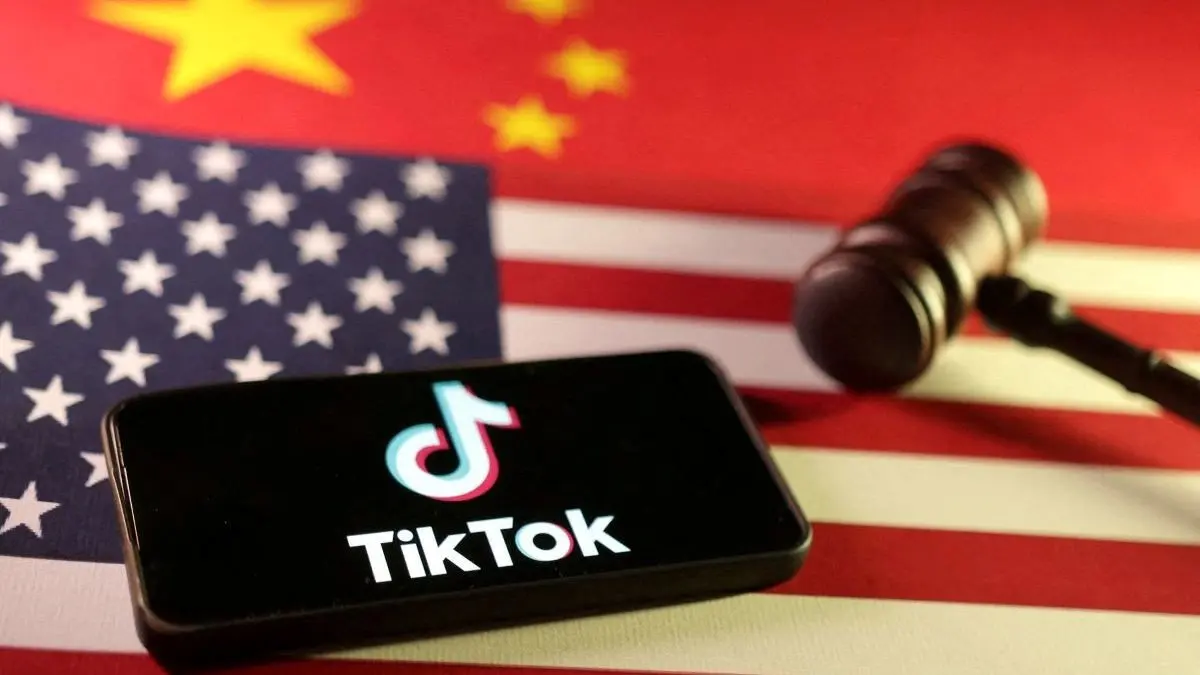Your cart is currently empty!

TikTok Faces Imminent U.S. Ban Amid National Security Concerns
As of January 16, 2025, TikTok, the widely popular video-sharing app owned by China’s ByteDance, is facing an uncertain future in the United States. The app, which boasts over 170 million active users in the U.S. alone, has become a cultural phenomenon, particularly among younger audiences who use it to create and share short-form videos…
As of January 16, 2025, TikTok, the widely popular video-sharing app owned by China’s ByteDance, is facing an uncertain future in the United States. The app, which boasts over 170 million active users in the U.S. alone, has become a cultural phenomenon, particularly among younger audiences who use it to create and share short-form videos ranging from dance challenges to educational content. However, its fate now hangs in the balance, with a potential ban looming just days away on January 19, 2025. This critical juncture comes as the culmination of years of escalating tensions between TikTok and the U.S. government, fueled by national security concerns.
Legislators and officials have raised alarms about the app’s data collection practices and the potential for the Chinese government to access sensitive user information. These concerns have prompted robust legislative actions aimed at restricting the app’s operations within the country, reflecting a broader effort to safeguard American data and reduce perceived risks associated with foreign technology platforms.
Table of Contents
Background and Legislative Actions
The U.S. government has long harbored concerns about TikTok’s connection to its parent company, ByteDance, which is based in China. Lawmakers and national security experts have raised alarms that the app’s vast data collection capabilities—including location data, search histories, and device information—could potentially be exploited by the Chinese government. This fear is rooted in China’s 2017 National Intelligence Law, which mandates that Chinese companies must cooperate with state intelligence efforts if requested. Officials argue that this creates a significant risk of espionage, with TikTok users’ data potentially accessible to foreign entities.
In light of these concerns, U.S. lawmakers passed legislation mandating that ByteDance either sell TikTok’s U.S. operations to a domestic company or face a total ban on the app by January 19, 2025. The move was part of broader efforts to reduce the influence of foreign technology platforms perceived as threats to national security. Proponents of the legislation argue that a divestiture would sever TikTok’s ties to China, ensuring greater protection of American user data.
However, ByteDance has strongly contested these claims, maintaining that TikTok operates independently and securely stores U.S. user data on domestic servers to prevent unauthorized access. The company has filed multiple lawsuits challenging the constitutionality of the ban, arguing that it infringes on First Amendment rights. ByteDance’s legal team asserts that banning TikTok would unjustly restrict free speech, as the platform has become a major channel for creative expression and communication for millions of Americans. Despite these legal challenges, the legislation remains a critical flashpoint in the debate over data privacy, digital sovereignty, and the limits of government intervention in technology.
Supreme Court Deliberations
The Supreme Court of the United States has been involved in reviewing the case, with oral arguments held on January 10, 2025. Observers have noted that the Court appears likely to uphold the law, with a majority expressing skepticism toward TikTok’s arguments. A final decision is anticipated imminently, which will determine whether the ban proceeds as scheduled.
Potential Impact on Users and Content Creators
The impending ban has significant implications for TikTok’s approximately 170 million U.S. users, including content creators and businesses that rely on the platform for engagement and revenue. In anticipation of the ban, many are exploring alternative platforms to continue their activities. Notable alternatives include Instagram with Reels, YouTube with Shorts, Snapchat, and emerging platforms like Clapper and Triller.
ByteDance’s Contingency Plans
Reports suggest that ByteDance is considering contingency plans, including the possibility of selling TikTok to a U.S. entity to comply with the legislative requirements and avoid a ban. Potential buyers and brokers, such as Elon Musk, have been mentioned in discussions, given their strategic relationships and interests in the social media landscape.
User Guidance
In preparation for the potential shutdown on January 19, 2025, TikTok has issued guidance to its U.S. users to help them preserve their content and transition smoothly in the event of a ban. The company has urged users to download their data, including videos, comments, and personal account information, before the app becomes inaccessible. To facilitate this process, TikTok has provided detailed, step-by-step instructions within the app. These instructions outline how users can export their data to ensure that their creative content and important information are not lost.
In addition to preserving their data, TikTok has advised users to stay informed by following official communications from the company, which are disseminated through its website, in-app notifications, and social media channels. The platform has also encouraged users to rely on reputable news sources for updates on the legal proceedings and the app’s future status in the United States. By staying informed, users can be better prepared to adapt to the potential ban and explore alternative platforms if necessary.
For content creators and businesses who depend on TikTok for outreach and income, the company has suggested exploring other social media platforms to maintain their digital presence. Platforms like Instagram Reels, YouTube Shorts, and Snapchat are among the alternatives TikTok has highlighted for users looking to continue sharing short-form video content and engaging with their audiences. These steps are part of TikTok’s broader effort to support its U.S. user base during this uncertain time and mitigate the potential disruption caused by the looming ban.
FAQ Section
Q1: Why is TikTok facing a potential ban in the U.S.?
A1: The U.S. government has raised national security concerns, alleging that TikTok could be used by the Chinese government for espionage and data collection. Legislation was enacted requiring ByteDance to either sell TikTok to a U.S. entity or face a ban by January 19, 2025.
Q2: When is the ban expected to take effect?
A2: The ban is scheduled to take effect on January 19, 2025, pending the outcome of Supreme Court deliberations.
Q3: How will the ban impact current TikTok users?
A3: If the ban proceeds, TikTok will become inaccessible to U.S. users. Users are advised to download their data before the shutdown. Content creators and businesses may need to transition to alternative platforms to continue their activities.
Q4: What alternatives are available for TikTok users?
A4: Alternatives include platforms like Instagram with Reels, YouTube with Shorts, Snapchat, Clapper, and Triller, each offering unique features catering to different content styles and audiences.
Q5: Is there a possibility that the ban could be averted?
A5: The Supreme Court is expected to make a final decision imminently. Additionally, ByteDance is exploring options, including selling TikTok to a U.S. entity, which could potentially avert the ban.
Interesting Read: Citibank Customers Report Fraud Alerts and Account Access Issues – Tech To Know


